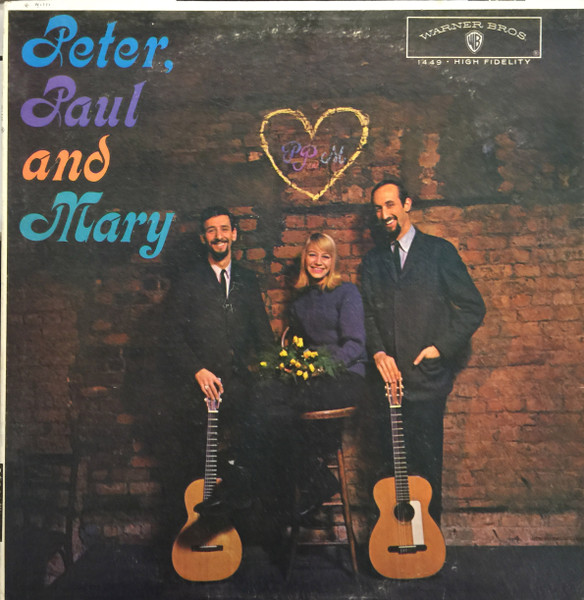 “You Make Me Feel Like a Natural Woman” is more than a song; it is an anthem of authenticity, empowerment, and emotional truth. Delivered with unparalleled vocal power and sincerity by Aretha Franklin, the “Queen of Soul,” this 1967 classic captures the essence of what it means to be seen, cherished, and truly understood. It transcends the boundaries of genre, time, and cultural context, speaking directly to the heart with a message that continues to resonate deeply with listeners across generations.
“You Make Me Feel Like a Natural Woman” is more than a song; it is an anthem of authenticity, empowerment, and emotional truth. Delivered with unparalleled vocal power and sincerity by Aretha Franklin, the “Queen of Soul,” this 1967 classic captures the essence of what it means to be seen, cherished, and truly understood. It transcends the boundaries of genre, time, and cultural context, speaking directly to the heart with a message that continues to resonate deeply with listeners across generations.
Written by the legendary songwriting trio of Gerry Goffin, Carole King, and Jerry Wexler, “You Make Me Feel Like a Natural Woman” was created during a vibrant era of soul music’s golden age. Carole King’s evocative melodies combined with Goffin’s poignant lyrics and Wexler’s visionary production formed the perfect foundation for Franklin’s transcendent vocal performance. The song was released as a single on Atlantic Records and quickly became one of Aretha’s signature tunes, firmly establishing her as a towering figure in both soul music and popular culture at large.
At its core, “You Make Me Feel Like a Natural Woman” is an intimate expression of gratitude and transformation. The lyrics articulate a powerful emotional awakening, portraying a woman who has been elevated by the love and acceptance of another. This transformation is framed through the phrase “natural woman,” which conveys not only romantic fulfillment but also a sense of reclaiming one’s identity and innate worth. The song’s narrative goes beyond mere romance — it speaks to a profound human need for validation and connection, for the recognition that love can bring healing and wholeness.
Aretha Franklin’s vocal delivery is nothing short of breathtaking. Her voice possesses a remarkable blend of strength and vulnerability, commanding attention with every note while revealing the tender layers beneath. From the opening lines, Franklin’s expressive phrasing pulls the listener into an intimate space where emotion feels palpable and immediate. The way she emphasizes certain words, holds notes just long enough to convey both yearning and assurance, and effortlessly transitions from soulful intensity to gentle warmth showcases her exceptional artistry. Her performance transforms the song into a living, breathing testament to the power of love and self-acceptance.
Musically, the arrangement complements Franklin’s vocals perfectly. The song’s instrumentation is lush yet restrained, allowing the emotional content to take center stage without distraction. Gentle piano chords, subtle strings, and a steady rhythm section create a warm and inviting soundscape. The background vocals, often credited to The Sweet Inspirations, provide a harmonious richness that elevates the track’s soulful atmosphere. This musical backdrop frames Aretha’s voice as the focal point, highlighting the emotional weight carried by the lyrics.
The cultural significance of “You Make Me Feel Like a Natural Woman” extends far beyond its musical composition. Released during the height of the Civil Rights Movement and the burgeoning feminist movement, the song became an anthem of empowerment for women, particularly Black women, who were navigating the complex intersections of race, gender, and identity. Aretha Franklin, through her music and public persona, embodied resilience, dignity, and grace, making this song a powerful statement of self-worth and liberation. The message that one could feel whole, worthy, and authentic through love resonated deeply with those fighting for equality and recognition in society.
Over the decades, “You Make Me Feel Like a Natural Woman” has been covered by numerous artists across a wide range of genres, further testifying to its timeless appeal. From Mary J. Blige’s soulful renditions to Celine Dion’s powerhouse vocals, the song has been reinterpreted while maintaining its core message of emotional authenticity. Each artist brings their own perspective, but Aretha’s version remains the definitive benchmark — the gold standard of soulful expression and heartfelt connection.
Live performances of the song have become legendary moments in Aretha Franklin’s career. Whether in intimate club settings or on grand stages, Franklin’s ability to connect with audiences through this song was unparalleled. Her performances were often marked by spontaneous improvisations, vocal runs, and dynamic shifts that heightened the emotional impact. These live renditions demonstrated not just her technical skill but her deep understanding of the song’s emotional architecture — knowing when to hold back and when to unleash her vocal power for maximum effect.
The song’s influence also permeates popular culture in myriad ways. It has been featured in countless films, television shows, and commercials, often underscoring moments of personal triumph, emotional breakthrough, or romantic realization. The phrase “natural woman” itself has entered the cultural lexicon as a symbol of genuine femininity and self-empowerment, a testament to the song’s lasting imprint on societal perceptions of womanhood.
What sets “You Make Me Feel Like a Natural Woman” apart from other love songs is its focus on identity and transformation. The song doesn’t merely celebrate romantic love; it honors the transformative power that love can have in revealing one’s true self. It suggests that love is not about possession or dependency, but about affirmation and growth. This subtle yet profound message adds layers of meaning that continue to inspire listeners, encouraging them to seek relationships that nurture their authenticity rather than diminish it.
Moreover, Aretha Franklin’s embodiment of the song’s themes extended beyond her recordings. Throughout her life and career, she was a symbol of strength and independence, breaking barriers and advocating for civil rights and women’s empowerment. “You Make Me Feel Like a Natural Woman” became an anthem that reflected not only personal love stories but also collective aspirations for dignity and respect. It reminded audiences that feeling “natural” — feeling whole and true — was a right, not a privilege.
The songwriting craftsmanship behind “You Make Me Feel Like a Natural Woman” deserves special recognition. Gerry Goffin’s lyrics are both straightforward and poetic, blending simplicity with emotional depth. Carole King’s composition balances melody and rhythm in a way that is both memorable and deeply moving. Their collaboration produced a song that feels both timeless and specific, a rare combination that has enabled the track to endure across changing musical landscapes and cultural shifts.
In conclusion, “You Make Me Feel Like a Natural Woman” is not merely a song but a cultural milestone. It captures the essence of emotional truth and empowerment through love, delivered by one of the greatest voices in music history. Aretha Franklin’s interpretation transformed the song into a powerful declaration of identity, worth, and authenticity. Its legacy continues to inspire, reminding us that true love is about making each other feel fully seen and naturally whole.


